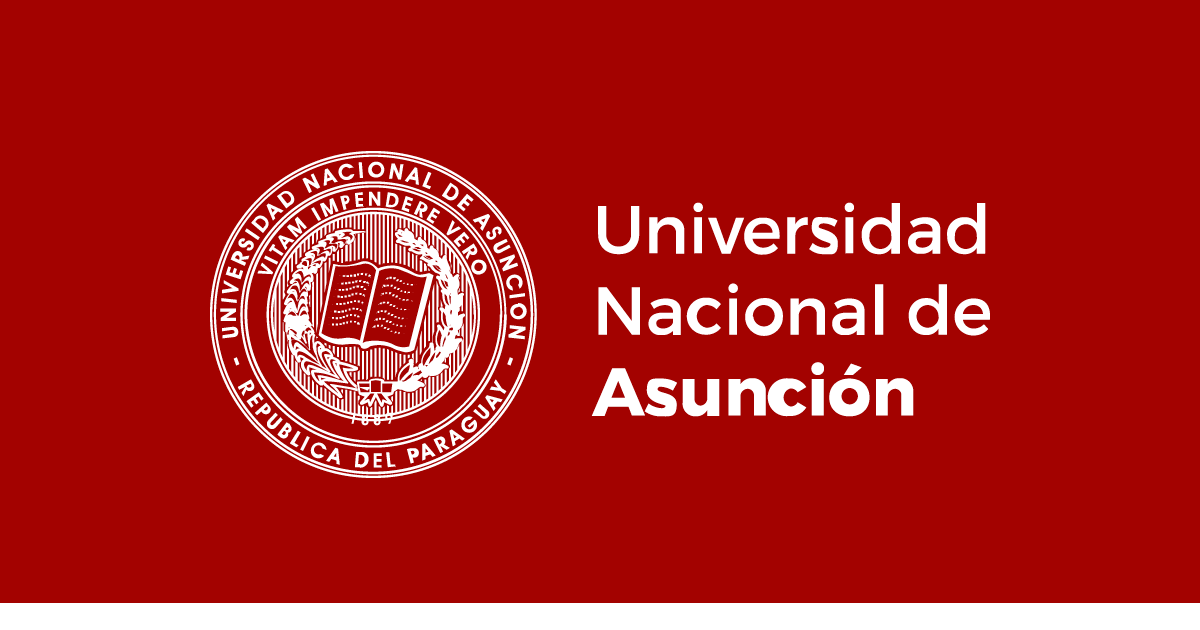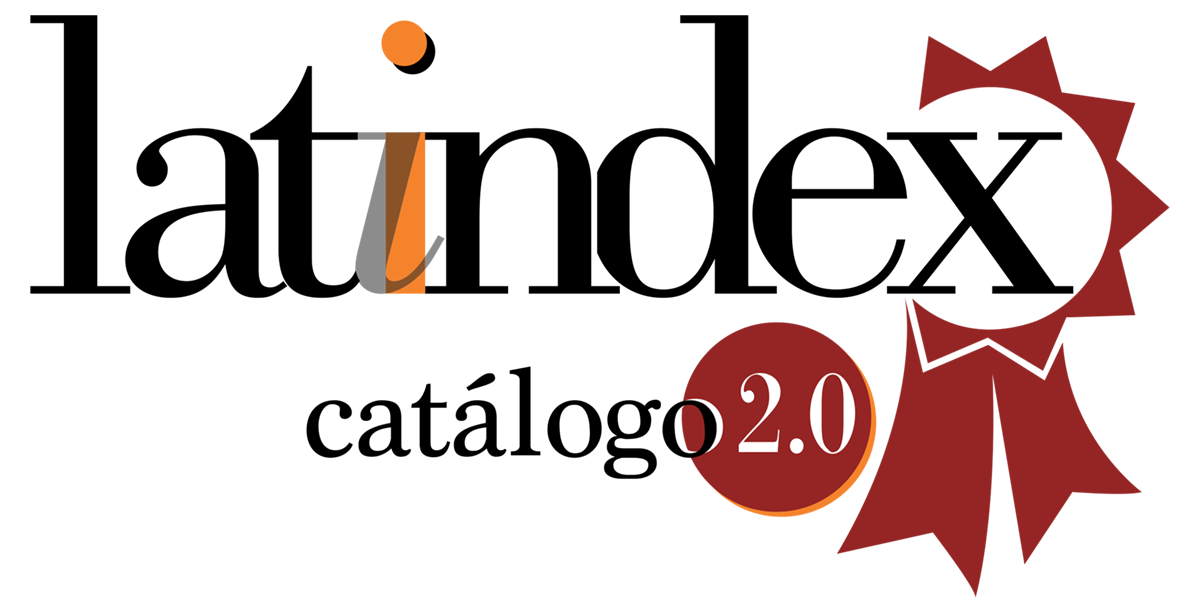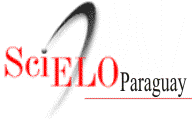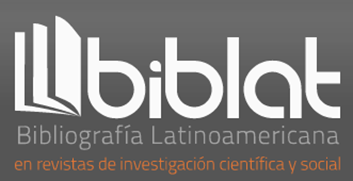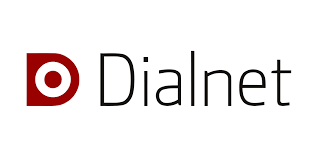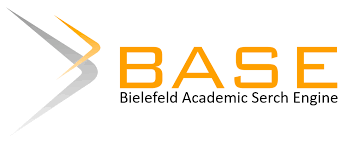Políticas de la Editorial
OPEN ACCESS POLICY AND USAGE RIGHTS
COLLABORATION AND AUTHORSHIP LEVEL
CONFLICT OF INTEREST DISCLOSURE POLICY
EVALUATION POLICY
All manuscripts are subject to an editorial and ethical review by members of the Editorial Board (Editor-in-Chief, Co-editor, and/or Associate Editors and Secretary). They are critically evaluated to ensure compliance with the following criteria:
- The adequacy of the subject to the areas covered by the Journal.
- The originality, novelty and interest of the subject.
- The observation of formal requirements such as results that give solid support to the conclusions that are raised, clarity and interest for non-specialists, use of figures and tables; the integration and depth of analysis of the cited literature.
- Technical quality in writing.
- Acceptance of the conditions of publication (submission of Cover Letter).
- The absence of conflicts of interest and compliance with copyright regulations and ethical standards of the journal.
- The manuscript must not be under review by another journal or submitted elsewhere simultaneously.
EDITORIAL PROCESS FLOWCHART
PEER REVIEW PROCESS
Submissions made through the platform will be managed by the Editors, who will verify that the manuscripts meet the general criteria for presentation, thematic scope, structure, and citation standards of the journal. Once it is determined that the manuscript meets these criteria, the decision to send it for peer review lies with the Editor-in-Chief and/or the Co-editor.
If the manuscript passes the review process, it will be assigned to an Associate Editor in the relevant field, who will evaluate its scientific content and decide whether to send it to area-specific reviewers. At least two expert reviewers in the field will be assigned. The review will be conducted as a double-blind process, wherein the reviewers will not know the names of the authors, and the authors will not know the names of the reviewers. The reviewers will evaluate the manuscripts based on their originality, validity, and importance to determine if they should be published in the journal. The selection of reviewers is based on their experience and expertise in the subject area of the manuscript.
After receiving all the requested reviews, the Associate Editors will prepare a recommendation for the Editor-in-Chief, with the possible decisions being:
- Reject the article.
- Accept it with modifications (publication will be approved once the suggested changes have been incorporated).
- Accept it for publication.
The manuscript will undergo a maximum of two rounds of revisions.
Regarding the ruling: if the manuscript receives two rejection decisions, it will be considered rejected, canceling the possibility of publication. If one decision is to accept and/or accept with modifications and the other to reject, the manuscript may be sent to a third reviewer, or the area editor will make the final and unappealable decision. If the manuscript is accepted with modifications, the corresponding author will be notified to review the manuscript, which should preferably be returned within a maximum of 30 working days. The author must address the reviewers' concerns, additions, corrections, expansions, or clarifications, or alternatively, provide a detailed justification in a letter.
In some cases, the reviewers may verify the changes to ensure that the authors have adequately addressed all observations and recommendations. If the changes have not been considered or the justifications are invalid, the manuscript will be rejected. Once the manuscript has been corrected following the recommendations, it will be forwarded to the Area Editor, who will consider it for final acceptance.
The Editor-in-Chief will review the Area Editor's consideration and make the final decision regarding the publication of the manuscript.
The content of the decision is confidential and for the internal use of the journal and the author.
Guidelines for Reviewers
Editing the Review Report
Editors will not delete or modify the reviewers' reports. However, if necessary, they may edit a report where the reviewer has used offensive language or included comments that reveal confidential information in the double-blind review process. We ask reviewers to avoid using any vocabulary or expressions that could offend the authors. Likewise, we expect authors to acknowledge constructive criticism and not consider the recommendations as unfair or outside the editor's critical judgment.
POST-EVALUATION POLICY
All decisions will be communicated via the platform and/or email to the corresponding author. The journal is committed to informing the author of the decision as soon as possible, along with the reviewers' comments, suggestions, and observations. However, the time required to process a manuscript varies depending on the complexity of the topic, the availability of suitable reviewers, and the manuscripts in the queue.
Acceptance of an evaluated and approved contribution does not imply its immediate publication. The journal "Investigaciones y estudios - UNA" reserves the right to make the final decision regarding the publication and the volume in which the manuscript will be included.
To avoid withholding relevant, original, and unpublished information for prolonged periods and to comply with the principles of Open Science, we offer the option of Early Access publication. The considerations and specifications are described below:
Early Access Publication
The journal offers an option called Early Access, which involves publishing articles online before their formal inclusion as part of a scheduled volume/issue and represents the definitive version of the record. Manuscripts in this category may appear in a preliminary, unformatted state and may be available online a few days after acceptance. This means that the article will be considered published and citable by its DOI as soon as it is published online. When submitting a new manuscript, the cover letter will include the question: "Would you like your article to be published online before formal inclusion?" If you select "yes" and your article is accepted, you will receive a notification to proceed with Early Access in your author center. If you select "no," you will not be able to submit your work for Early Access later.
Authors are responsible for providing a clean version for Early Access publication. If you used Microsoft Word's track changes or inserted comments for the editor in the final review, they must be removed in this version. The article will not be published without your final acceptance. Articles published under Early Access will include a statement identifying the article as a preliminary version. Additionally, in the management platform (OJS), the following phrase will appear: "This article has been peer-reviewed and accepted for publication, but it has not yet been edited or corrected. The final published version may differ."
Articles will be removed from Early Access and assigned a page number once they are included in an issue.
COLLABORATION AND AUTHORSHIP LEVEL
To define the level of collaboration and authorship, the following model is suggested:
- Author Contributions: "Study conception, X.X. and Y.Y.; Experiment design, X.X.; Experiment execution, X.X.; Experiment verification, Y.Y.; Data analysis/interpretation, X.X.; Statistical analysis, X.X.; Manuscript preparation, X.X.; Manuscript editing and review, X.X.; Final manuscript approval, X.X. All authors have read and approved the published version of the manuscript."
- Before the References section, a paragraph detailing the level of contribution by the authors, identified by their initials, should be added. Completing all roles is not mandatory, and sections can be removed if deemed unnecessary.
- Authorship should be limited to those who have substantially contributed to the work presented.
COPYRIGHT POLICY
Authors retain their copyright and grant the journal the right of first publication under the Creative Commons 4.0 (CC-BY) License, which allows users to:
- Share — copy and redistribute the material in any medium or format.
- Adapt — remix, transform, and build upon the material for any purpose, even commercially.
Under the following terms:
- Attribution — You must give appropriate credit, provide a link to the license, and indicate if changes were made. You may do so in any reasonable manner, but not in a way that suggests the licensor endorses you or your use.
- No additional restrictions — You may not apply legal terms or technological measures that legally restrict others from doing anything the license permits.
The information and opinions contained in the articles are the sole responsibility of the authors and will not be attributed to the publishing house, the Editor, or the Editorial Board of the journal.
PRIVACY STATEMENT
The names and email addresses entered in this journal will be used exclusively for the purposes stated and will not be provided to third parties or used for other purposes.
ETHICAL ASPECTS
The journal "Investigaciones y estudios - UNA" is committed to upholding and maintaining ethical standards at all stages of the publication process.
CODE OF ETHICS IN THE EDITORIAL PROCESS
Duties and Responsibilities of Editors and the Editorial Board
- Ensure the confidentiality of authors' data during the review process.
- Safeguard texts that are not accepted and ensure a proper process for their rejection.
- Define and explicitly state the criteria for the acceptance of articles for review.
- Avoid preferential treatment that could disadvantage other authors.
- Have no conflict of interest regarding the submitted texts.
- Not use any information from the texts or data presented beyond publication purposes.
- Establish clear and objective review criteria to prevent reviewer subjectivity.
- Review suspicious incidents of plagiarism and resolve any conflicts of interest.
- Evaluate manuscripts solely based on their intellectual content, regardless of the authors' race, gender, sexual orientation, religious beliefs, ethnic origin, nationality, or political philosophy.
Duties and Responsibilities of Authors
- Originality : Ensure that the work is original and has not been published in another journal or medium.
- Truthfulness : Provide accurate data and demonstrate that it has been collected correctly.
- Plagiarism or Self-Plagiarism : Avoid total or partial plagiarism of previously published works.
- Authorship : Confirm that the listed authors have contributed significantly to the research presented in the manuscript. The cover letter must indicate the contributions made by each author.
- Conflict of Interest : Declare any associations that may present a conflict of interest in connection with the submitted manuscript.
- Cited Literature : Indicate all sources of information used and differentiate between direct and indirect references. Authors are responsible for obtaining the necessary permissions to partially reproduce material (text, tables, or figures) from other publications and for citing the source correctly.
- Do not submit the manuscript simultaneously to another journal.
- If the article is accepted, authors must commit to making the required modifications within the stipulated timeframe.
- In appropriate cases, present documentation that assures the research followed minimum ethical standards, such as informed consent and approval from an ethics committee, if necessary.
Duties and Responsibilities of Reviewers
- Conduct a fair and objective review of the received manuscripts.
- Clearly present the arguments for their evaluation.
- Decline to review articles where there may be a conflict of interest that could limit their objectivity (e.g., involvement in the research, personal relationship with the authors, or being in dispute with the person or group presenting the work).
- Maintain confidentiality of the information and data in the evaluated articles.
- Evaluate manuscripts solely based on their intellectual content, regardless of the authors' race, gender, sexual orientation, religious beliefs, ethnic origin, nationality, or political philosophy.
CODE OF ETHICS IN THE AREA OF HEALTH AND VETERINARY SCIENCES
For works involving human subjects, indicate whether the procedures followed the ethical standards of the Council for International Organizations of Medical Sciences (CIOMS) and the Declaration of Helsinki. For experiments involving animals, indicate compliance with the basic international guiding principles for biomedical research involving animals, as established by CIOMS and the International Council for Laboratory Animal Science (ICLAS). Clinical trials in both cases (humans and animals) must explicitly state that the protocol was approved by an Ethics Committee and that informed consent was obtained from study participants or their legal representatives. Authors must attach a copy of the Ethics Committee's approval letter in all aforementioned cases.
CONLFLICT OF INTEREST DISCLOSURE POLICY
Authors of a manuscript, the journal editors, and reviewers must disclose any conflict of interest that could influence the manuscript or its review and approval. If authors declare a conflict of interest, it must be communicated to the manuscript reviewers. Likewise, reviewers invited to evaluate a manuscript should excuse themselves if they have a conflict of interest with the subject matter.
The journal guarantees the selection of the most suitable reviewers in terms of thematic and academic compatibility. In case of controversy, "Investigaciones y estudios - UNA" commits to resolving these situations through its Editorial Board, which will take reasonable measures to identify and prevent the publication of articles involving research misconduct.
The journal will not encourage improper conduct nor knowingly allow it to occur. If the editor or associate editors become aware of any allegation of research misconduct, the Editorial Board is responsible for retracting articles or publishing errata to correct the articles, if necessary.
PLAGIARISM POLICY
The Editorial Board (Editor-in-Chief, Co-editor, and/or Associate Editors, Reviewers) has the authority to reject a manuscript during the review process if sufficient and verified evidence is provided by any of its members. Publications may also be canceled in response to complaints from the victims of plagiarism. The Editorial Board acknowledges the importance of recognizing the correct individuals for the submitted work.
Plagiarism is defined as copying a phrase from another person’s manuscript verbatim without specific mention or permission and includes the use of one's previously published phrase without proper citation. The journal recommends reviewers use free plagiarism detection tools to identify possible instances of plagiarism.
PLAGIARISM DETECTION: During the preliminary review process, technological tools will be used to detect plagiarism in the submitted works (currently, the use of the program PlagScan is proposed). If plagiarism is confirmed, the article will be rejected, regardless of its current editorial stage.
OPEN ACCESS POLICY
The journal "Investigaciones y estudios - UNA" is committed to ensuring that all digital content generated or sponsored by it is freely available online to the general public.
Its content can be freely used under the Creative Commons Attribution License CC-BY 4.0, allowing users to:
- Share — copy and redistribute the material in any medium or format.
- Adapt — remix, transform, and build upon the material for any purpose, including commercial purposes.
Authors of works published under this open access policy retain the copyright of their works. "Investigaciones y estudios - UNA" may request a non-exclusive license to publish and distribute the work, but the author retains ownership rights.
The journal is committed to following open access principles, promoting the maximum dissemination and accessibility of knowledge generated within its facilities. Additionally, it will seek to implement practices that facilitate the use, reuse, and sharing of academic and research content to foster a collaborative environment and advance knowledge on a global scale.
DIGITAL PRESERVATION POLICY
"Investigaciones y estudios - UNA" is published by the General Directorate of Scientific and Technological Research and is part of the National University of Asunción's portal, managed by the National Computing Center.
The journal has a digital preservation policy for all its files in the short, medium, and long term.
Short Term
Local copies of the publications are made on computers, on storage media such as Google Drive cloud storage, and on an external hard drive managed by those responsible for the platform.
Medium Term
Files and data hosted on the server are managed by IT professionals at the National Computing Center of the National University of Asunción.
The National Computing Center performs backups on the server and updates the Open Journal Systems (OJS) to ensure system versions are up to date.
Long Term
The journal is stored on the National University of Asunción's open-access scientific journal portal.
The journal's content is automatically stored in the following digital preservation systems.
PKP is an initiative of various universities that develops open-source software (free) and conducts research to improve the quality and reach of academic publications.
The PKP Preservation Network provides free preservation services for any OJS journal that meets the basic criteria.
REPOSITORY POLICY
"Investigaciones y estudios - UNA" allows all versions of the article to be deposited in an institutional repository or another repository of the author's choice, including the "Portal de Revistas Científicas - UNA," without any embargo period.
ARTICLE PROCESSING CHARGES
The journal "Investigaciones y estudios - UNA" does not charge authors for the submission, acceptance, or publication of manuscripts; they are not subject to any cost.
PUBLICATION FRECUENCY
The journal is published semi-annually (First period: January to June; Second period: July to December). Articles are accepted year-round, and each issue has a closing month.
LANGUAGE
Spanish, English, and Portuguese.
EDITORIAL EVALUATION FLOWCHART

